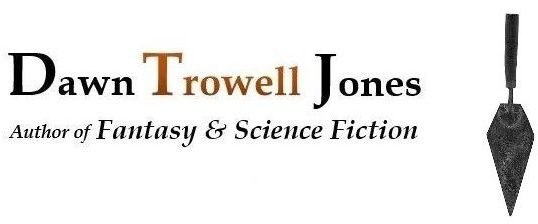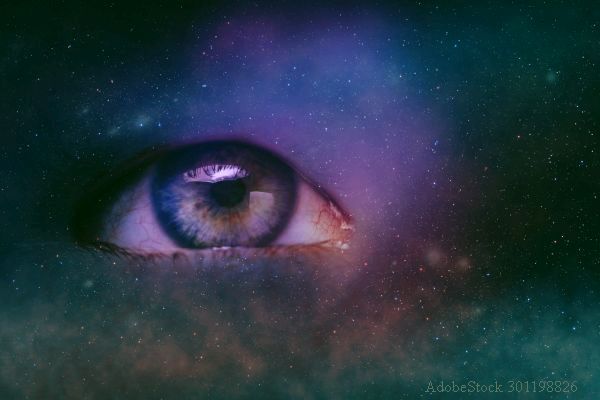 As I was jotting down some of my thoughts today, as they drift, I noticed there’s one that keeps circling back around, and I must say, it has bothered me.
As I was jotting down some of my thoughts today, as they drift, I noticed there’s one that keeps circling back around, and I must say, it has bothered me.
People have been expressing a strange notion lately, or maybe there’s always been a group that believes science fiction or, more generally, speculative fiction is at its best when it tries to represent a better future, and solves problems. Some even take it a step further and say we’re obligated to do this.
 How can I agree with that? I don’t. Speculative realities encompass so much, so much that’s born out of the real world, what writers have experienced living in it. There’s the plausible and concrete, the esoteric and whimsical, even sometimes the spiritual, and everything in between – whatever getting through a day might look like. Things often go badly, or as Margaret Atwood might playfully throw in, they gang aft angley. And they must, or there’s no story. It’s certainly not a writers’ obligation to solve society’s ills. My god, just pile it on, won’t you? I’m teasing. But don’t pile it on. It’s hard enough to survive intact these days with our hyper-attuned natures. We have sharp tongues because we perceive the sharpness of tongues. And please forgive, friend, but I feel there’s something a little conspicuously undermining about putting such an expectation on us. We need to maintain an open mind to do what it is we do, play our role. We’re bellwethers, all of us. And, at times, some of us may even emerge as prognosticators. (Let’s hope Atwood isn’t one of them.) It’s our nature to look ahead, often compulsively. Anyone who creates worlds with words, whether rooted in the real one or one that only lightly brushes against reality, needs to be free to go where the story takes her. Another way of putting it: we need the freedom to follow what holds our attention. This will usually reflect the interests of society, though a few may point out where we ought to be looking but haven’t yet.
How can I agree with that? I don’t. Speculative realities encompass so much, so much that’s born out of the real world, what writers have experienced living in it. There’s the plausible and concrete, the esoteric and whimsical, even sometimes the spiritual, and everything in between – whatever getting through a day might look like. Things often go badly, or as Margaret Atwood might playfully throw in, they gang aft angley. And they must, or there’s no story. It’s certainly not a writers’ obligation to solve society’s ills. My god, just pile it on, won’t you? I’m teasing. But don’t pile it on. It’s hard enough to survive intact these days with our hyper-attuned natures. We have sharp tongues because we perceive the sharpness of tongues. And please forgive, friend, but I feel there’s something a little conspicuously undermining about putting such an expectation on us. We need to maintain an open mind to do what it is we do, play our role. We’re bellwethers, all of us. And, at times, some of us may even emerge as prognosticators. (Let’s hope Atwood isn’t one of them.) It’s our nature to look ahead, often compulsively. Anyone who creates worlds with words, whether rooted in the real one or one that only lightly brushes against reality, needs to be free to go where the story takes her. Another way of putting it: we need the freedom to follow what holds our attention. This will usually reflect the interests of society, though a few may point out where we ought to be looking but haven’t yet.
One of my favorite quotes, a meme I have pinned to my wall behind my monitor, to remind me if I ever feel overwhelmed or doubtful, is from Salman Rushdie. He has many of these, but I like this one:
“If you want to be a serious writer, then you have to write what there is to write about. If you’re going to pull your punches and second-guess yourself and not do things because you’re worried, then don’t write. Stay home and do something else.”
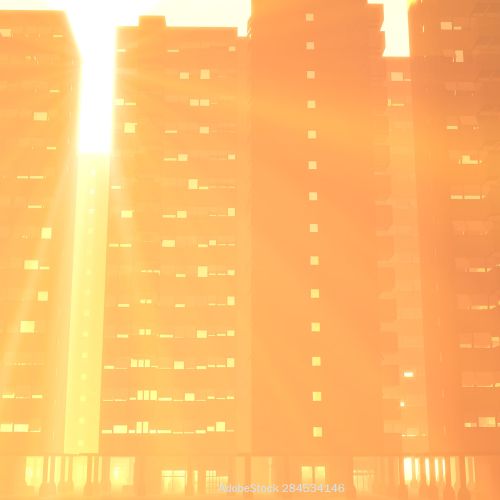 I don’t owe anyone a utopia. Humanity is messy.
I don’t owe anyone a utopia. Humanity is messy.
This article, which I’ve since lost, offered up The Martian as an example of the sort of can-do positive story that we need in our speculative fiction right now. We need to hear about problem solvers, and lionize them, was the idea. I can’t deny that The Martian was a great book – I especially loved the main character, a ‘techie’ type, rough edges and all. It has had broad appeal, was even brought up at an alumni event I attended earlier this year. In the science fiction of over half a century ago, there was often this wonderful energy of getting things done, of being on the cusp of discovery, a delightful morale-boost for a rational exploration of our world, solving puzzles with practical applications in the moment. And there was this optimistic vision that we as a collective humanity are getting somewhere we want to go, riding on the shoulders of giants, led by resourceful individuals who are too distracted with their tremendous sense of purpose to get the social niceties right all the time. No time for rumination. The Martian showed that well.
Yes, that feeling is wonderful. I crave it in my fiction sometimes, speculative or not, even while aware there can be a price to pay for all that narrow focus and drive. My most recent novel, as I imagined the story when I began drafting it, was meant to have that feeling of being on the cusp of discovery – hopefully, I’ve accomplished that. Not entirely science-based, but not entirely not either. But as I saw it, I was tapping into the vibe of the movie Altered States. I had to hunt for the out-of-print book, but within those pages was exactly the thrill I’m talking about. You can see it in some of Michael Crighton’s work. You see it in Rendezvous with Rama, which I read when I was a teenaged girl dreaming of a life of space travel as a scientist. But these are not utopian stories! No! They’re stories of who we were during their times, when the large-scale cost of our technological advancements was starting to become more evident. And the sequels to Rama go to a much darker place, as I recall. As my character says in I’m Your Goat, there’s never too much change, only change happening too quickly. Any story about advances will be a story about people, because without people, nobody cares. The natural world carries on. So maybe it’s politics gone bad that taints. But you can’t escape people when telling stories for people and about people, and people are messy. I just reread Le Guin’s famous short story “The Day Before the Revolution” – it’s important to note that the main character glosses over the horrors she endured to bring about the revolution, perhaps even having inspired some of them. She’s pleased to see the results, but can’t quite feel relief. In her mind, the struggle was what was real. Peace became a strange thing to rejoice. It was almost as if Le Guin was hinting at a possible danger point for us, that of bliss. Because, as I said, humans are messy. We create messes.
And sometimes solving our own messes leads to some fine moments both beautiful and glorious. The salvation of mankind, no less! Who doesn’t want some messiness if we can have our heroes?
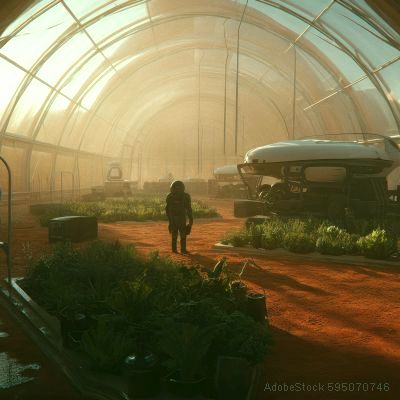 Maybe these stories of clever heroes solving problems are so satisfying because they’re local. The story can end on a happy note. We get to believe that someone in this world can do something right, solve a problem with their own native wits (well-educated wits, though, right?), and they and a sufficient number of others can go on with their lives feeling good. But like the quote from Charlie Chaplin, who said tragedy is a situation seen up close, while comedy is the same situation when seen at a distance: When we back out, do the brilliant minds in other spheres, the soft sciences like politics and psychology, take over and gently guide us in for the landing? What’s the flip side of heroic innovation?
Maybe these stories of clever heroes solving problems are so satisfying because they’re local. The story can end on a happy note. We get to believe that someone in this world can do something right, solve a problem with their own native wits (well-educated wits, though, right?), and they and a sufficient number of others can go on with their lives feeling good. But like the quote from Charlie Chaplin, who said tragedy is a situation seen up close, while comedy is the same situation when seen at a distance: When we back out, do the brilliant minds in other spheres, the soft sciences like politics and psychology, take over and gently guide us in for the landing? What’s the flip side of heroic innovation?
Perhaps what these critics crave more than utopias and solutions served to them on a platter by writers of fiction (I have to warn you, if the story’s any good, the takeaways will be at least a little nuanced and cryptic and subject to debate), instructions anyone can follow to find bliss, are simply heroes one can get behind most of the time. Heroes must be transformed in some way; they can’t come out unscathed. They can’t be faultless and still have misconceived notions, or fail to be cruel in a vulnerable moment. They won’t be people we can believe in.
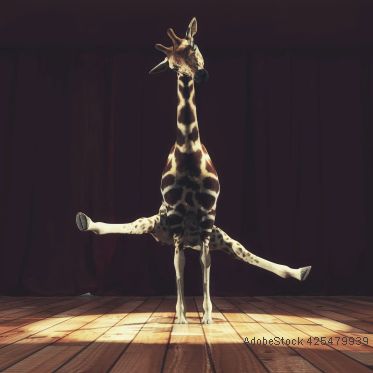 Well, if we want to get more out of our stories, either the popular variety or the more literary, we need to let go of this primness. We need to see some bad choices, ugly behavior, moral ambiguity, or even just the awkwardness of getting the social bits wrong – which we can only perceive if characters try and fail. We need to let people behave like people. Much like a 1980s coming-of-age story, where there’s some bigotry and some sexism, and yet nobody is purely downtrodden, nor is anyone truly elevated. Just people getting it sometimes right and sometimes wrong – as in, get to know yourself a little better by deciding for yourself. We need to embrace the cringe to understand it better. Not constantly, because that would be exhausting and nobody wants that. Even a Mad Max story can go too far with the depravity. But we can’t afford to pretend the dark side of our nature isn’t there, or that it can entirely go away. That would be truly naïve. It would also result in characters who are no longer recognizable as human. Is this the sort of utopia these critics seek? One without humans? Are they secret nihilists? People will forever vie for power over one another, and they’ll love one another; they’ll do both. They’ll misunderstand one another and have needs. They’ll mourn. They’ll rejoice. They’ll cull – yes, they will, in one way or another – and they’ll cultivate. Shared experiences are relative and our notions of who’s “other” depend on who we believe we are. If we’re explicitly excluded, we’ll know ourselves to be other. But don’t forget the flip side: if everyone’s a winner, there are no winners. There’s no notion of excellence. Who are our heroes, then? Drawing distinctions is how we come to know our world. Curiosity and compassion and ignoring these distinctions when appropriate are how we get along.
Well, if we want to get more out of our stories, either the popular variety or the more literary, we need to let go of this primness. We need to see some bad choices, ugly behavior, moral ambiguity, or even just the awkwardness of getting the social bits wrong – which we can only perceive if characters try and fail. We need to let people behave like people. Much like a 1980s coming-of-age story, where there’s some bigotry and some sexism, and yet nobody is purely downtrodden, nor is anyone truly elevated. Just people getting it sometimes right and sometimes wrong – as in, get to know yourself a little better by deciding for yourself. We need to embrace the cringe to understand it better. Not constantly, because that would be exhausting and nobody wants that. Even a Mad Max story can go too far with the depravity. But we can’t afford to pretend the dark side of our nature isn’t there, or that it can entirely go away. That would be truly naïve. It would also result in characters who are no longer recognizable as human. Is this the sort of utopia these critics seek? One without humans? Are they secret nihilists? People will forever vie for power over one another, and they’ll love one another; they’ll do both. They’ll misunderstand one another and have needs. They’ll mourn. They’ll rejoice. They’ll cull – yes, they will, in one way or another – and they’ll cultivate. Shared experiences are relative and our notions of who’s “other” depend on who we believe we are. If we’re explicitly excluded, we’ll know ourselves to be other. But don’t forget the flip side: if everyone’s a winner, there are no winners. There’s no notion of excellence. Who are our heroes, then? Drawing distinctions is how we come to know our world. Curiosity and compassion and ignoring these distinctions when appropriate are how we get along.
Any story about setbacks must include progress or it won’t be meaningful. Any story about progress must include setbacks, or it won’t be meaningful. What are these visions of the future that I’m supposed to write about? Whose visions? Which modern day problems would readers like me to solve for them? How will these problems be defined? It matters. Will people even listen if I succeed? Maybe the truth is we like our messes. Artists, you may have noticed, tend to repeat themselves when they don’t feel heard. Same as anyone.
It’s not entirely unreasonable to like a degree of messiness. We’ve evolved as quickly as we have partly because of our propensity to create messes. Necessity is the mother of invention.
We just don’t want planet-annihilating messes. How’s that for positivity?
Now I’d like to get back to my current project, full of heart and desolation.
